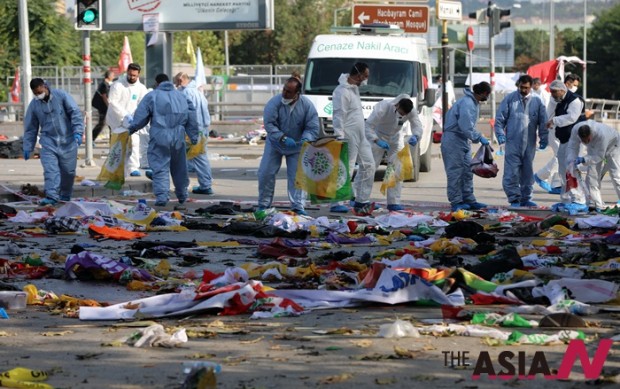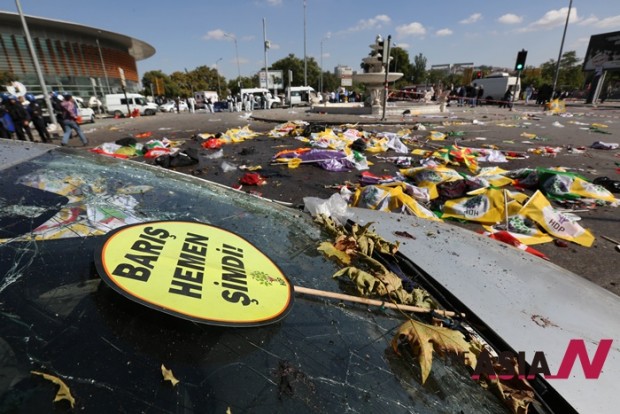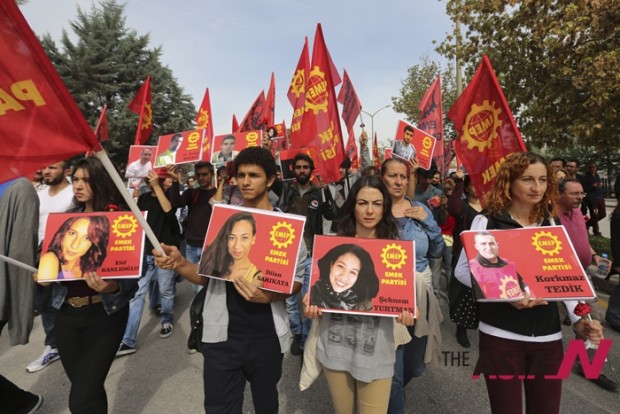
Two powerful bombs exploded at a peace rally near the main train station in Ankara on Saturday morning, killing over 100 people and wounding 246 others in the deadliest attack in the Turkish capital in recent memory.
The victims were attending a lunchtime peace march calling for an end to the renewed conflict between the Kurdistan Workers’ Party (PKK) and the Turkish government.
The government has called the attack a “terrorist act” and rejected allegations that it was to blame. Prime Minister Ahmet Davutoglu said the Islamic State (IS) group, Kurdish militant factions or far-leftist radicals could have carried out the bombing. Some have suggested militant nationalists opposed to any accommodation with Kurds seeking greater minority rights could have been responsible.

The attack occurs three weeks before the national elections and three months after the breakdown of a mutual ceasefire between the Turkish government and the (PKK). Hundreds of people have been killed in the escalating violence since then. The government declared the following three days as a ‘mourning period’ for the Ankara victims.
In response to the attack thousands gathered protesting and paying their respect to the victims blaming the government and the police forces for not stopping the bombers from infiltrating the crowds with chants like “death to fascism” or “Chief and murderer, Erdogan”. While the Kurdistan Workers’ Party (PKK) declared a “state of inactivity” after suffering loses in their forces and shelters.

And even though no group claimed responsibility for the attack, Davutoglu said Turkey was warned about suicide bomb attacks and in the past three days arrested two suspects.
With the start of the mourning period, Turkey witnessed big marches for funerals as well. Most of the dead remain unknown to people because of the contradicting death and injuries numbers issued by the government.




